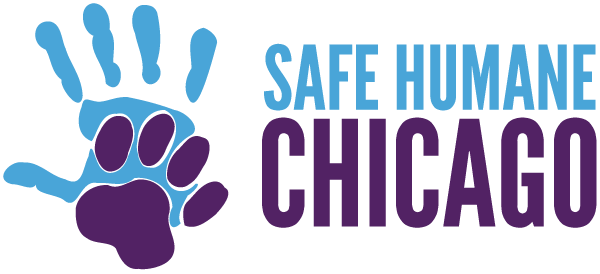
Collaborative Justice
Collaborative Justice programs are partnerships of government agencies and community members that promote identification, arrest, prosecution, and effective sentencing of perpetrators of animal cruelty and work to place the animal victims in good homes. They also develop informational materials and collect evidence that promote understanding and effective intervention for designated audiences. Programs include Court Advocacy, Court Case Dogs and Law Enforcement Training.
Court Advocacy
A successful Court Advocacy program trains community members to follow court cases involving animal abuse of all kinds and develops informational materials that promote understanding and effective intervention. The existing program is a partnership of Safe Humane Chicago and both Chicago and Cook County agencies. It has trained more than 800 volunteers, followed hundreds of court cases, and positively impacted arrests, prosecutions, convictions and remedies. For more information, visit Court Advocacy.
Court Case Dogs
Chicago’s Court Case Dog Program started in January 2010 through the efforts of Safe Humane Chicago, Safe Humane Chicago’s Court Advocacy, Best Friends Animal Society and Chicago Animal Care & Control (CACC). These organizations sought to establish a more compassionate and dog-friendly approach to a serious problem. Some of these dogs were held at CACC for two years or more. Because of our program and partnerships in the court system, this is no longer happening. Court Case Dogs are now finding homes at about the same rate as other CACC shelter dogs.
To meet some of the dogs in our Court Case Dog Program and read about their successes, visit Court Case Dogs.
Law Enforcement Training
Police, prosecutors and judges are trained on connections between animal abuse and interpersonal violence as well as enforcement of animal-related laws, humane treatment of animals caught in the judicial system, and effective sentencing. We have also partnered with other organizations and agencies to provide information to law enforcement nationwide. In 2011, for instance, the U.S. Department of Justice COPS Office, with funding from the National Canine Research Council, published a law enforcement training manual, The Problem of Dog-Related Incidents and Encounters: http://ric-zai-inc.com/ric.php?page=detail&id=COPS-P206. Because of the popularity of the printed book, the National Canine Research Council and Safe Humane Chicago, in partnership with The U.S. Department of Justice Office of Community Oriented Policing Services (COPS), decided to launch a video training series for law enforcement agencies called Police & Dog Encounters: Tactical Strategies and Effective Tools to Keep Our Communities Safe and Humane: http://cops.igpa.uillinois.edu/resources/police-dog-encounters
Police & Dog Encounters
Safe Humane Chicago helps to develop a video training series called Police & Dog Encounters: Tactical Strategies and Effective Tools to Keep Our Communities Safe and Humane.
Mookie
Mookie - now in a loving home with two adoring brothers. Safe, humane, compassionate.
Collaboration Saves Lives
Read about how Safe Humane Chicago has pushed Chicago to the forefront of animal protection.




